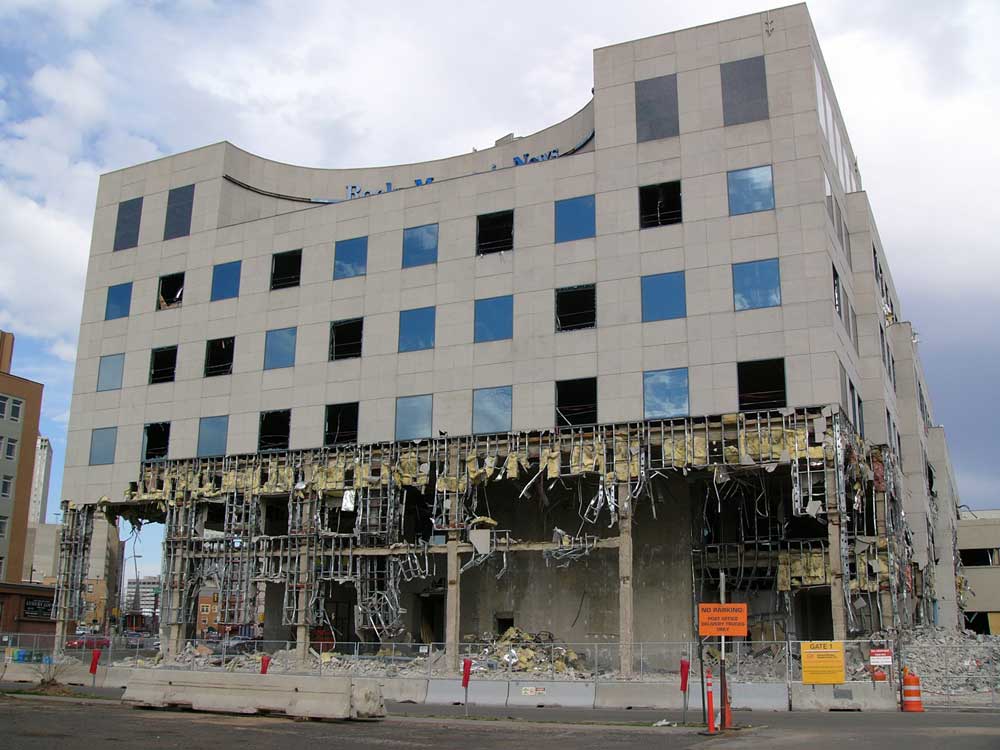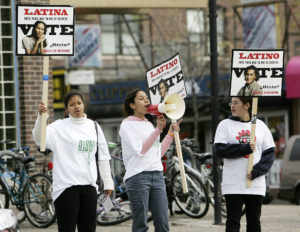When Local Newspapers Fold, Taxpayers Take a Hit in the Wallet
The closures result in lower voter turnout and decreased political accountability, and that generates a financial cost. The Rocky Mountain News building under demolition after the local paper's closure in 2009. Ken Schroeppel / DenverInFIll
The Rocky Mountain News building under demolition after the local paper's closure in 2009. Ken Schroeppel / DenverInFIll
Newspapers are the watchdogs of government. When the pooch gets put down, taxpayers pay the price.
In a recent study, researchers from the University of Illinois and the University of Notre Dame found that local newspaper closures result in higher costs for taxpayers.
Dermot Murphy, one of the study’s co-authors, a professor of finance at the University of Illinois at Chicago, spoke with NPR’s Lisa Mullins about the finding.
“When a local newspaper closes, then they are no longer providing a crucial watchdog role for us. When a local government isn’t being watched, they are more likely to engage in bad behavior and just be more inefficient in general.”
Multiple studies support Murphy’s claims. When local newspapers stop their presses, civic engagement and political accountability decline.
Lenders to municipal governments take notice of the decreased governmental accountability. When local governments then seek loans to attain public goods—such as schools, roadways or public buildings—lenders take the lack of accountability into consideration.
“We thought, if a government is engaging in bad behaviors, then someone who is lending to a local government might have to ask for a higher interest rate to compensate for the risk of lending to an irresponsible government,” Murphy said in the NPR interview.
The study, titled “Financing Dies in Darkness? The Impact of Newspaper Closures on Public Finance,” finds that “following a newspaper closure, we find municipal borrowing costs increase by 5 to 11 basis points in the long run.”
What does this mean for the average taxpayer whose city or town has lost a local newspaper? “This can cost the average taxpayer about $70 per person, ” Murphy says. The study finds that the average municipal bond value is $63.67 million within a county with a closure. This results in $650,000 in total cost of interest paid by taxpayers.
In addition to the financial costs of newspaper closures, municipalities pay through lack of voter turnout. One study, by professors Danny Hayes of George Washington University and Jennifer Lawless of American University, found that districts served by large-circulation news outlets “see significantly less, and less substantive, coverage than hotly contested districts and those served by smaller outlets.” Voters then have lower exposure to candidates and are less likely to vote. Another study looked into the effects of the closure of The Cincinnati Post and found that “fewer people voted in elections for city council, city commission, and school board.”
A recent study by the Newspaper Research Journal found a net loss of 1,800 newspapers between 2004 to 2015 due to mergers and closures. As more local papers go under, voters should understand that their concerns about losing local publications should extend to their wallets.
Listen to the full NPR podcast here.
Your support matters…Independent journalism is under threat and overshadowed by heavily funded mainstream media.
You can help level the playing field. Become a member.
Your tax-deductible contribution keeps us digging beneath the headlines to give you thought-provoking, investigative reporting and analysis that unearths what's really happening- without compromise.
Give today to support our courageous, independent journalists.




You need to be a supporter to comment.
There are currently no responses to this article.
Be the first to respond.